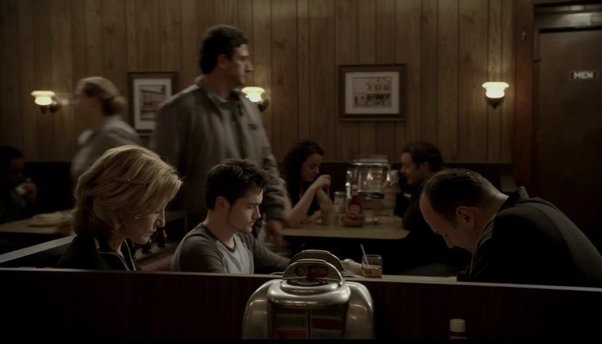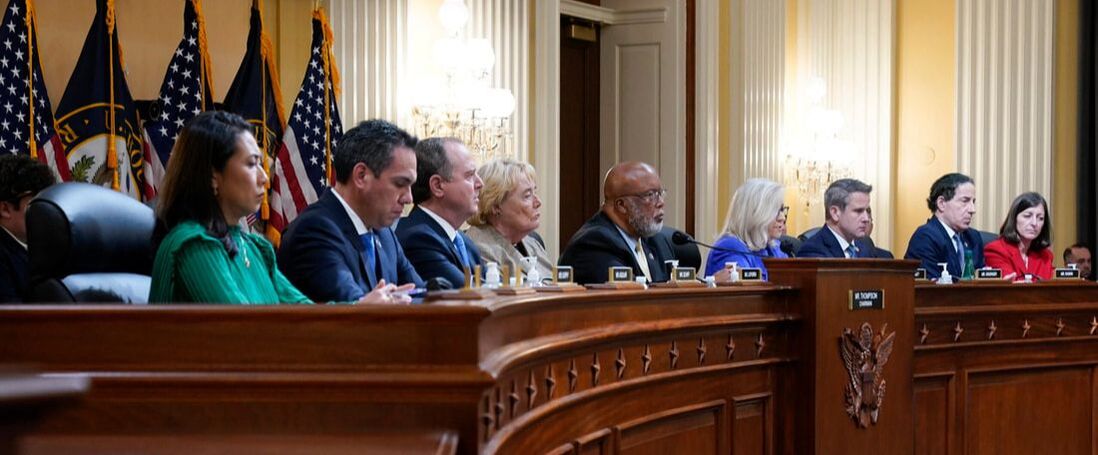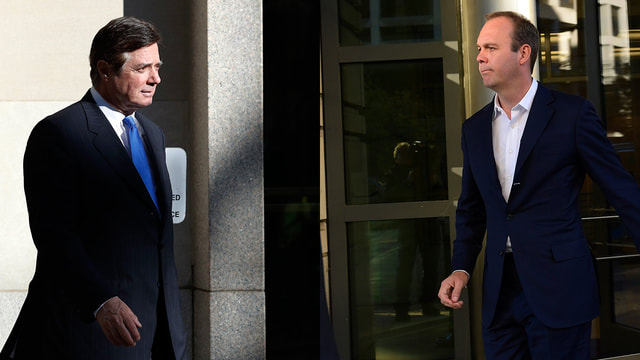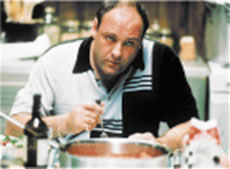|
(NB: In the first version of this, I forgot to mention the heroes and victims of Trump's rampage -- the police officers who were left to fight it out, without adequate weapons or backup, by that murderous thug of a President. Some of them were present in the front row, mute and injured witnesses to the massive evidence being presented. There were also two guys who just happened to get caught up in the rampage, now professing sorrow, without a trace of remorse or wisdom. One couldn't even find a jacket and tie to appear before Congress. The other guy tried to apologize to Harry Dunn, the brother who had to swat vermin with his bare hands that day. Dunn is a wonderful person. To his credit, he gave the man a blank stare and let him go his way. The witness still has to answer to his wife, who was present on Tuesday. Good luck with that. My belated thanks to the officers who were set up to fail and be injured, by the President of the United States. GV)
I have become addicted to the Jan. 6 committee hearings – hanging on every response, every nuance, every face in the audience. I have not been this involved in any television spectacle since The Sopranos, all those years ago. In fact, I am deeply afraid this series will end the same way The Sopranos did – by going dark, with no final conclusion for the chief character. Tony Soprano and Donald Trump. Guy from Jersey, guy from Queens. When the Sopranos series ended so abruptly – with Tony, Carmela and A.J. eating onion rings while waiting for Meadow to park the car – I understood what author David Chase had done. He let all of us construct our own ending. Okay. Deep down, it was only a TV series, and in some strange way I saw Tony as a family man (as well as a bully and a murderer and gangster), so I concocted my alternate coda for the family – new identities and fingerprints, a swanky home in Boca Raton, the kids in college. Another chance. I could concoct another persona for Tony but I cannot imagine another life for Trump--or his admirers. As of now, I bet there might even be six or seven middle-of-the-road Republican voters around the country who have bothered to watch or read the hearings and have decided Trump is a vile criminal, after all. I have the terrible feeling that AG Merrick Garland will sleepwalk through the final Biden years, and Trump will talk his way out of everything, the way he did starting near the family bunker in Jamaica Estates. In the meantime, I watch these hearings the way I watched the Sopranos. Don’t call me. Don’t text me. I’m a total Fan Boy for Liz Cheney the way I once was for Edie Falco, and I hang on the patriotic history lessons from Rep. Jamie Raskin the way I did on the scowling gangland sagacity of Steven Van Zandt, Tony’s consigliere. This current series is the best education in civics I have ever seen on TV. Every member of the panel reminds those of us who are listening what democracy means, or should mean. I have tried not to rage at the revelations in each of these made-for-TV “hearings,” keeping my cool as people revealed the ways Trump garroted and knifed and shot democracy. I held back my rage on Tuesday watching a weasel lawyer named Cipollone try to suggest he had undergone a miracle cure – seen the light, praise the Lord – although it was clear the committee’s lawyers had suggested he might want to testify, or else. The weasel was 18 months late. However, there are still surprises, particularly last week from Cassidy Hutchinson, the 26-year-old aide to another weasel, Mark Meadows. (What is it with people like Mark Meadows, Lindsey Graham, Kevin McCarthy and the aforementioned Cipollone – they need a strong Fuhrer type to make them feel whole?) Anyway, Miss Hutchinson was still young enough, had not been around politics long enough to have her heart corrupted, and she had the visceral understanding that bad things were going on down the hallway and she shamed the weasel Meadows into at least acknowledging the dark intentions of Trump. Cassidy Hutchinson has taken on the aura of a latter-day Paul Revere, sloshing through the slimy bogs of Washington, shouting, “The weasels are coming! The weasels are coming!” Someday there may be a Cassidy Hutchinson stamp – put me in for a 100-pack. I did lose it on Tuesday, however. My position watching this horror show has come from the Iris DeMent song – “No Time to Cry.” “Working overtime to make sure that I don’t come unglued.” But then Rep. Stephanie Murphy from Florida, one of the panel members I knew least, gave her short summation of the day. She is, she revealed, from a family that escaped by boat from Vietnam. She praised the United States of America, and she linked the committee’s work with the ideals of truth and democracy….and to my amazement I started to weep, great big salty tears rolling down my face, and I turned to my wife (who does not hold back her rage at these thugs) and I found myself blubbering, “They don’t get any of this, do they?” I was referring to the enablers and hustlers and explainers and deniers and downright racists who supported, and continue to support, Donald J. Trump, who is worse than anybody in “The Sopranos.” The Sopranos merely murdered and stole. These people are worse. Unless the Justice Department steps up, I can foresee another show going dark. One of my favorite scenes in all the Sopranos episodes -- plus, nobody dies. 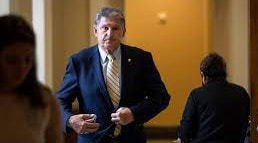 There is a terrific article about the enduring appeal of the Sopranos’ series, in this Sunday’s magazine section of The New York Times, already online. The writer Willy Staley, an editor of the NYT magazine, claims the series is extremely popular with younger people who were too young to watch it during its heyday. Why? The Sopranos are trying to hold on to their thuggish edge in an apocalyptic world where all the rules are gone, even for gangsters. Until I read this article, I had never seen the broader picture – I had laughed at the funny lines even when my stomach was churning, knowing what was going to happen to characters like Big Pussy or Adriana, in over her head. Who knew this was actually about America? But then the magazine article popped up online, describing Tony’s world of expensive suburbs, with everybody emulating gangster architecture, until the palaces met in the middle. No taste, no privacy, even for a gang lord. Then on the very day of the magazine article, I was watching the televised Congressional budget death dance, and there was Sen. Joe Manchin of West Virginia, ostensibly a Democrat, jutting out his jaw in a narrow corridor, being pestered by a reporter. The pesty reporter, Ari Natter of Bloomberg News, asked Manchin if his view on protecting the dying coal industry was colored by the fact that his son ran a coal company and Manchin received profits from it. “I’ve been in a blind trust for 20 years,” Manchin said, hard-faced. “I have no idea what they’re doing.” “You’re still getting dividends,” the reporter persisted. “You got a problem?” Manchin asked. When the reporter asked another question, Manchin snapped: "You'd do best to change the subject." (Published reports say Manchin has made $500,000 in coal dividends. The family is busy. Daughter Heather Bresch once presided over a drug company, Mylan, when the price of EpiPens soared to $600 a shot. And Gayle Conelly Manchin, wife of the senator, is now the federal co-chair of the Appalachian Regional Commission, no doubt taking care of the poor folks in the hollers. That's the way it works in Appalachia.) Seeing Joe Manchin in action, I thought immediately of how Tony Soprano’s face would darken as he menaced somebody. I thought of how Furio, Tony’s muscle man, nudged the uncooperative doctor into the golf-course water hole, up to his ankles. * * * I know there is a prequel about the Sopranos coming out, but I think I’ll skip it. For me, that world, that series, ended – quite appropriately – with no resolution about what happened to Tony and his family. I usually postulate that the evening in the restaurant ended prosaically, and Tony and Carmela found a way to get out of the business, changed their fingerprints and moved to Boca Raton. (I bet Tony even plays golf.) Maybe, in their new lives, Tony and Carmela watch TV as Joe Manchin struts down a Congressional corridor, pretty much saying he doesn’t care what happens to all those people. He’s got his. Tony: “That used to be me.” * * * Read the great NYT magazine article for yourself: https://www.nytimes.com/2021/09/29/magazine/sopranos.html I fell in love with Annabella Sciorra back when we had HBO, which meant whenever the Mets’ bullpen was blowing a lead I could channel-surf movies.
One night I happened upon an essentially corny tale about two people who have divorced but remain involved in each other’s lives. That’s all you need to know. Somehow or other, she and her new beau are at a charity fund-raiser and are called up to sing, while her ex sits with his new lady friend. The former wife is Annabella Sciorra, previously unknown to me, and heartbreakingly adorable. She shakes her gorgeous ringlets and modestly hits the right notes for the popular “I Say a Little Prayer,” recorded by Dionne Warwick and Aretha Franklin, both great. Somehow, two women materialize from behind a curtain, in nurses’ outfits, singing backup, like two-thirds of the Supremes. In a front row, the ex-husband, Matt Dillon, is sitting with his new lady, Mary-Louise Parker, and Dillon suddenly realizes he has made a terrible mistake in divorcing this girl, and he glowers (apparently his only facial expression in any movie) and his lady friend glances sideways and susses the situation: Poor glowering Matt is in love. By that time, so are many other persons of the XY chromosome persuasion, including me. I don’t know how that movie turned out because I invariably tuned back to see how the Mets blew another game, but Annabella Sciorra is now permanently in my memory. Let us fast-forward to this Thursday when Ms. Sciorra testified in court that Harvey Weinstein raped her back in 1993 or '94 and terrorized her for months or years afterward. She is a witness in the trial of this monster, who is accused of raping and haunting dozens of other women. Her agony is on the public record, she and friends talking about how her career suffered, her personality changed, after the alleged assaults by Weinstein. She was never the same, some friends have said. This makes me feel guilty for following her in her time with “The Sopranos,” when she was the femme-fatale luxury-car saleswoman who takes up with Tony Soprano, who beats her up, just before her tragic end. Given what we know now, how awful to play that role. The best role Annabella Sciorra plays now is that of witness. This is what that man did. Her testimony will perhaps make every man question something he said, or did, without ever getting anywhere near Weinstein levels. Reading what she went through brings out the vigilante impulse, but there’s enough of that floating around. Brava to Ms. Sciorra for going public, after decades of terror. No quick justice for Harvey Weinstein, now a lumbering old man, allegedly with back troubles. May he push his walker into jail, for a very long sentence surrounded by inmates who, in the pecking order of prisons, don’t like his kind. From this Annabella Sciorra fan, my toast to Harvey Weinstein: “Cent’Anni.” One hundred years. In the slammer. * * * Sciorra talks about Weinstein, interview by Ronan Farrow: https://www.newyorker.com/news/news-desk/weighing-the-costs-of-speaking-out-about-harvey-weinstein Movie review: https://www.nytimes.com/1993/10/15/movies/a-story-of-electricity-men-women-and-con-ed.html Weinstein trial: https://www.nytimes.com/2020/01/23/nyregion/harvey-weinstein-annabella-sciorra-trial.html?searchResultPosition=1 The terrible plight of Paul Manafort and Rick Gates reminds me of the best newspaper crime story I ever read.
January, 1973, I had just moved to Metro news at the Times. The editors sent me out to deepest Brooklyn, where jewels had been stolen from the altar of an ornate church. I wrote a wordy lead about the caretaker of the church muttering “Che coraggio” – what gall, in Italian. And I did quote a store owner in the neighborhood, noting the influential persons who supported the church, as saying: “No fence is going to touch this stuff.” But the reporter from the Daily News wrote a classic. I cannot locate the exact words by Frank Faso that day, but his story began something like this: “Some nervy crooks stole the crown jewels from the altar of St. Rosalia Regina Pacis in Brooklyn the other day. “If they are lucky, the police will catch them.” Oh, yeah. How New York. How tabloid. How wonderful. (This was when two great tabloids, New York Newsday and the Daily News, were covering the city with zeal and skill.) I was chastened and respectful. The jewels were recovered 24 hours later. * * * This tale of criminality reminds me of our current administration, in that Manafort and Gates, now making front-page headlines for their stunning variety of indictments, seem to have owed a good deal of money to some other rather unpleasant people – Russians, Russians with a memory, Russians with poisoned umbrellas and lethal cups of tea. Paul Manafort. Is there anything on public record of him ever being or doing anything respectable, before he became an American shill for thuggish Ukrainians and Russians? What did he ever do to put him in the middle of a presidential campaign in a country whose income taxes he had apparently ducked? Who is this guy? He seems to have had money problems, with bad people looking for him, to try to recover millions and millions of dollars. And Gates was a hapless Robin to Manafort’s compulsive Batman. In this, they resemble a couple of pigeons with a gambling jones who bet too much on the third race at Aqueduct or 23 on the roulette table. Suckers. Suckers on the lam. They tried to get it back by aligning themselves with two real-estate hustlers from Noo Yawk and Noo Joisey. If this were a never-released season of “The Sopranos,” we would have new characters, Paulie Peanuts and Rusty Gates, trying to make it all right for themselves by serving in the family of Donnie Combs and his son-in-law Squeaky. But remember in “The Sopranos” -- I have not watched any series since -- how there were always investigators listening on tapped wires, or cooped in a windowless van, or waiting to scoop up a member of the clan for a friendly chat? Paulie Peanuts and Rusty Gates seem to have fallen into the right hands. Now they just have to watch out for lethal umbrellas or laced tea in their next abodes. But wait, there seem to be a few more episodes in the series: What about the money-laundering and real-estate nightmares of Donnie Combs and his son-in-law Squeaky? These guys seem to have Russian troubles and Chinese troubles, respectively. To paraphrase the great Frank Faso of the old New York Daily News: If they are lucky, Robert S. Mueller will get them. I’m glad I stood next to James Gandolfini for five minutes after a Nets’ game a few years ago, to ascertain for myself that he was not Tony Soprano, not really. He had the wariness, the watchfulness, of an artist, not a gangster.
Gandolfini and his cast mates and the great David Chase made me commit to that show. I had not watched any series since M*A*S*H ended, but I planned my Sunday evenings around the Sopranos. (Driving through Hazard, Ky., a decade ago, asking motel managers if the rooms had HBO.) I do a riff on why Tony is my role model – I’m sure my wife is quite sick of it. He is modern man. He loves his wife, loves his kids, has a large family and takes his work seriously. (I then launch into the part of the riff about a hot psychiatrist and a hot car saleswoman and an intriguing one-legged Russian home aide -- who dumps him!) By the weirdest of Chasian ironies, Svetlana was a point of reference in The New York Times on the same day Gandolfini’s photo was on the front page for the worst possible reason. A letter to the editor about electronic surveillance and liberty quoted Svetlana as an admirer of America. Tony made me worry about his health. Glimpses of him in those déclassé sleeveless undershirts or in bed or at the pool made me worry that he was having too many meals with too many associates – all that cheese, all that pasta, all that meat, all those desserts. Basta gia, enough already. Were there too many rehearsals around those tables? Did Artie send over too many antipasti? All I knew was that I couldn’t take my eyes off any of them, the people or the plates. David Chase and his associates found a universe full of amazing characters who moved from real life to the screen for that one role. Robert Altman did the same thing, envisioning Jim Bouton, the pitcher, as a fugitive who needs to be whacked; finding musicians I had met in the bars and corridors of Music City and putting them in his movie Nashville, and casting Virginia Madsen as a stunning red-headed angel of death, and getting Lindsay Lohan to perform what I fear will be the high point of her acting career in Prairie Home Companion. Chase and his people did the same thing with musicians and civilians – put them in a series with Tony Soprano. He exposed Tony’s demons early – witnessing his father cutting off a finger of a deli operator who has not paid his debts. Tony’s childhood anxieties have lasted, linking the finger and the spicy ham, capicola, pronounced gabagool in the Neapolitan dialect. In the series, when Gandolfini referred to his terrors, he would say, “You know, you know, the gabagool.” After that, there really is no point watching anything else, ever. I sometimes saw James Gandolfini playing Tony Soprano and I imagined a season ending in which Tony would gather up his family and go to Boca Raton and enter a witness protection program. I saw the potential for a limited form of remorse, the chance of living another life. That was my hope for my role model. The last we saw of Tony Soprano, he was in a restaurant with his wife and son, about to have a meal. Then the screen faded black. Everybody has an interpretation. Mine is: Tony ordered spaghetti puttanesca and a couple of cannoli and lived a long and peaceful life, somehow. I wished nothing less for James Gandolfini. Addio, maestro. |
Categories
All
|
